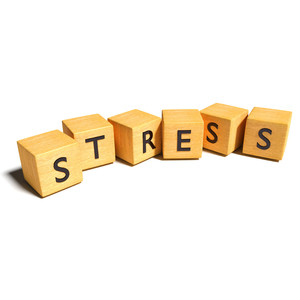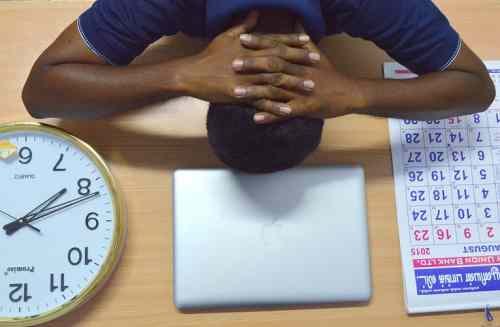Are we surviving or thriving? This week is Mental Health Awareness Week 2018 and the theme is: ‘Stress: are we coping?’
In a recent article, Mark Rowland explains the theme and proclaims that the single greatest thing we could do to prevent mental health problems is to reduce and avoid stress.
Many of us are living with high levels of stress and this affects our mental health. We need to know what the triggers are and make the changes needed for a less toxic approach to living.
What is stress
Stress is a feeling of being under abnormal pressure. This pressure can come from different aspects of your day to day life. Such as an increased workload, a transitional period, an argument you have with your family or new and existing financial worries.
Researchers at the Yale Stress Center found that when stress becomes a way of life the prefrontal cortex part of our brain begins to shut down and even reduces in size. The prefrontal cortex is the most recently evolved part of our brains – it regulates our amygdala, blood pressure and heart beat but also enables us to learn, plan, concentrate and make judgements.

Chronic stress increases our risk of addictive and destructive behaviour, of developing anxiety, depression and other mental health problems. It can also increase risks of physical health problems including heart disease, insomnia, muscle pain and damages our immune system etc.
Stress has also been linked to cancer, both through increasing inflammation in the body which can aid in the spread of cancer, and through greater risk of central obesity.
Interestingly, it is our perception of stress in our lives added to actual stressful event that predicts its impact on us. It is sad to note that the kind of society we live in affects our mental health.
We are passionate about moving towards a less stressed nation. Below are what the signs of stress are and what simple steps you can take to prevent stress. We also want to strengthen your ability to handle the pressures of life.
How can I identify the signs of stress?
Everyone experiences stress. However, when it is affecting your life, health and wellbeing, it is important to tackle it as soon as possible, and while stress affects everyone differently, there are common signs and symptoms you can look out for:
- feelings of constant worry or anxiety
- feelings of being overwhelmed
- difficulty concentrating
- mood swings or changes in your mood
- irritability or having a short temper
- difficulty relaxing
- depression
- low self-esteem
- eating more or less than usual
- changes in your sleeping habits
- using alcohol, tobacco or illegal drugs to relax
aches and pains, particularly muscle tension - diarrhoea and constipation
- feelings of nausea or dizziness
- loss of sex drive.
Three steps to take when feeling stressed
1. Realise when it is causing you a problem
Try to make the connection between feeling tired or ill and the pressures you are faced with. Look out for physical warnings such as tense muscles, over-tiredness, headaches or migraines38
2. Identify the causes
Try to identify the underlying causes
Sort the possible reasons for your stress into three categories
A) those with a practical solution
B) those that will get better given time and
C) those you can’t do anything about
Try to release the worry of those in the second and third groups and let them go
3. Review your lifestyle
Could you be taking on too much? Are there things you are doing which could be handed over to someone else? Can you do things in a more leisurely way?
To act on the answer to these questions, you may need to prioritise things you are trying to achieve and re-organise your life. This will help to release pressure that can come from trying to do everything at once

Seven steps to help protect yourself from stress
1. Eat healthily
Eating healthily can reduce the risks of diet-related diseases. There is a growing amount of evidence showing how food affects our mood and how eating healthily can improve this.
You can protect your feelings of wellbeing by ensuring that your diet provides adequate amounts of brain nutrients such as essential vitamins and minerals, as well as water
2. Be aware of smoking and drinking alcohol
Try not to, or reduce the amount you smoke and drink alcohol. Even though they may seem to reduce tension initially, this is misleading as they often make problems worse
3. Exercise
Try and integrate physical exercise into your lifestyle as it can be very effective in relieving stress. Even just going out and getting some fresh air, and taking some light physical exercise, like going for a walk to the shops can really help
4.Take time out
Take time to relax. Strike the balance between responsibility to others and responsibility to yourself, this can really reduce stress levels
Tell yourself that it is okay to prioritise self-care · Are you needing time out but saying ‘I just can’t take the time off’, if so read more about how taking a break is important for good mental health
5. Be mindful
Mindfulness is a mind-body approach to life that helps us to relate differently to experiences. It involves paying attention to our thoughts and feelings in a way that increases our ability to manage difficult situations and make wise choices.
Try to practice mindfulness regularly. Mindfulness meditation can be practiced anywhere at any time
Research has suggested that it can reduce the effects of stress, anxiety and related problems such as insomnia, poor concentration and low moods, in some people.
6. Get some restful sleep
Are you finding you are struggling to sleep? This is a common problem when you’re stressed. Could your physical or mental health be impacting your ability to sleep?
Could you amend your environment to help improve your sleep? Could you get up instead of staying in bed when your mind is worrying at night? Could you make small changes to your lifestyle to help your get a restful sleep?
[Remarkable health benefits of sleep]
7. Don’t be too hard on yourself
Try to keep things in perspective. Remember that having a bad day is a universal human experience.
When your inner critic or an outer critic finds faults, try and find truth and exception to what is being said.
If you stumble or feel you have failed, don’t beat yourself up. Act as if you were your own best friend: be kind and supportive.
Take a few minutes each day to appreciate yourself.
Source: Mental health foundation



